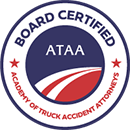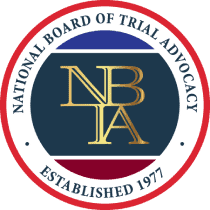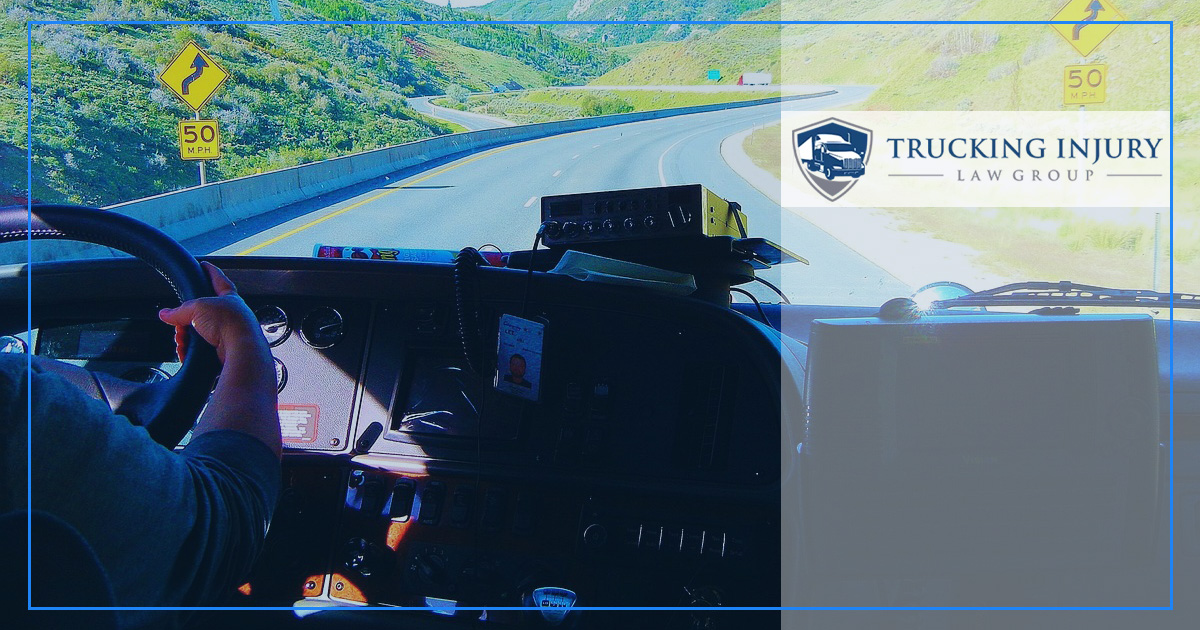What Are the Most Common Distractions for Truck Drivers?
When it comes to transporting goods over long distances, we rely on truck drivers to make safe and timely deliveries. However, driving for extended periods on the open road can be challenging, and drivers need to keep distractions to a minimum. Otherwise, there could be an accident on the road.
At Trucking Injury Law Group, we know distracted driving is dangerous, leading to catastrophic injuries and fatalities.
Let’s look at the most common distractions for truck drivers and the risk of those behaviors on the road.
What Is Distracted Driving?
Many distractions can take a driver’s attention away from the road. These can be in the cab or outside of the vehicle. According to the National Safety Council, distractions are categorized into three types:
- Visual distractions: Eyes
- Manual distractions: Hands
- Cognitive distractions: Mind
All drivers can be distracted, but when someone is operating a large vehicle, like a commercial truck, then they need to take extra precautions to prevent that from occurring. Even a brief lapse in attention can have devastating consequences.
Common Distractions for Truck Drivers
Distracted driving is a dangerous behavior, and it claims many lives each year. According to the National Highway Traffic Safety Administration (NHTSA), distracted driving resulted in a loss of 3,308 lives in 2022.
There are numerous distractions that can take that attention away from the truck’s driving duties. Some of the most common ones include:
Using a Mobile Phone
Whether making calls, sending texts, or checking notifications, using a phone requires visual, manual, and cognitive attention away from the road. When someone takes their eyes off the road, it can lead to serious accidents, such as rear-end collisions. Hands-free devices may be used, but drivers should limit their interactions with technology as much as possible while behind the wheel.
Any driver caught using a cell phone will face a few consequences, such as fines up to $2,750 and driver disqualification for multiple offenses from the Federal Motor Carrier Safety Administration (FMCSA).
Using In-Cab Technology
Most modern trucks have GPS systems, fleet management software, and electronic logging devices (ELDs) within the driver’s reach. While these tools are needed to improve efficiency and compliance with federal regulations, they can also become distractions. Drivers need to use them responsibly. Most of these devices are designed to be operated while the truck is stationary.
For that reason, truck drivers should make adjustments to these systems before hitting the road or while safely parked.
Eating and Drinking
For long-haul truck drivers, meals are often eaten on the go. While eating or drinking may seem harmless, this manual distraction requires drivers to take their hands off the wheel and their attention off the road.
Spills, food packaging, and handling beverages can divert attention and lead to dangerous incidents.
Drivers should take time to eat during scheduled breaks or at rest stops.
Adjusting Radio or Climate Controls
Simple tasks, such as changing radio stations, adjusting air conditioning or heating, or tweaking other in-cab controls, can still cause drivers to momentarily take their eyes and hands off the task of driving. Even a brief glance away from the road to adjust controls can result in an accident, especially when driving at high speeds.
Drivers should set up their radio stations, temperature settings, and other controls before starting their journey to minimize the need for adjustments while driving.
Passenger or Pet Distractions
Most truck drivers operate alone, but some drive with passengers or pets. Conversations, pets needing attention, or passengers moving around in the cab are all distractions that take the driver’s attention away from their duties.
If drivers have passengers, they should know the importance of not engaging in distracting behavior. Also, anyone traveling with pets should have them safely secured in a carrier or restrained to avoid moving around the cab.
Outside Distractions
Road accidents, billboards, construction zones, or other roadside activities can easily catch a truck driver’s attention. Rubbernecking happens when drivers slow down to look at an accident or other distraction.
This is a dangerous habit that can lead to sudden stops or collisions. While it is impossible to eliminate all external distractions, drivers should focus on maintaining a safe speed and staying vigilant about the road ahead.
Fatigue
Truckers need to put long hours on the job. Many times, this can lead to fatigue and cognitive distractions, such as daydreaming.
When drivers are tired, their ability to concentrate diminishes, and their reaction times slow. Fatigue-related distractions are some of the most common causes of trucking accidents. The FMCSA’s Hours of Service (HOS) regulations limit the number of hours drivers can be on duty and require mandatory rest breaks. Despite that, some drivers may still push themselves beyond safe limits.
To prevent any of these issues, drivers should prioritize getting rest during off-duty periods and avoid driving when they feel drowsy.
The Dangers of Distracted Driving
These distractions behind the wheel increase the dangers of an accident due to the size and weight of commercial vehicles. Truck accidents often result in severe damage and injuries due to the truck’s momentum traveling on the road.
Even a minor distraction can be potentially catastrophic. There are other dangers of distracted driving on the road, such as:
- Increased stopping distance: Large trucks require more time and distance than smaller vehicles to come to a stop. Any distraction that delays a driver’s reaction time increases the risk of failing to stop in time to avoid a collision.
- Severe accidents: A distracted truck driver is more likely to cause a multi-vehicle accident, especially on highways. Trucks can easily crush smaller vehicles in an accident, resulting in catastrophic injuries or fatalities.
- Legal and financial consequences: If a driver is found to have been distracted during an accident, they may face fines, loss of their commercial driver’s license, or even criminal charges. Trucking companies can also be liable for damages in a personal injury lawsuit.
Distracted driving can lead to many serious consequences. While on the road, truckers should pay full attention to their job duties. Texting and driving, adjusting in-cab controls, or rubbernecking can result in potentially dangerous situations. Drivers have a duty to act responsibly, and engaging in this behavior is a form of negligence.
If these actions cause an accident with injuries or fatalities in a trucking accident, they could be liable for those damages.






